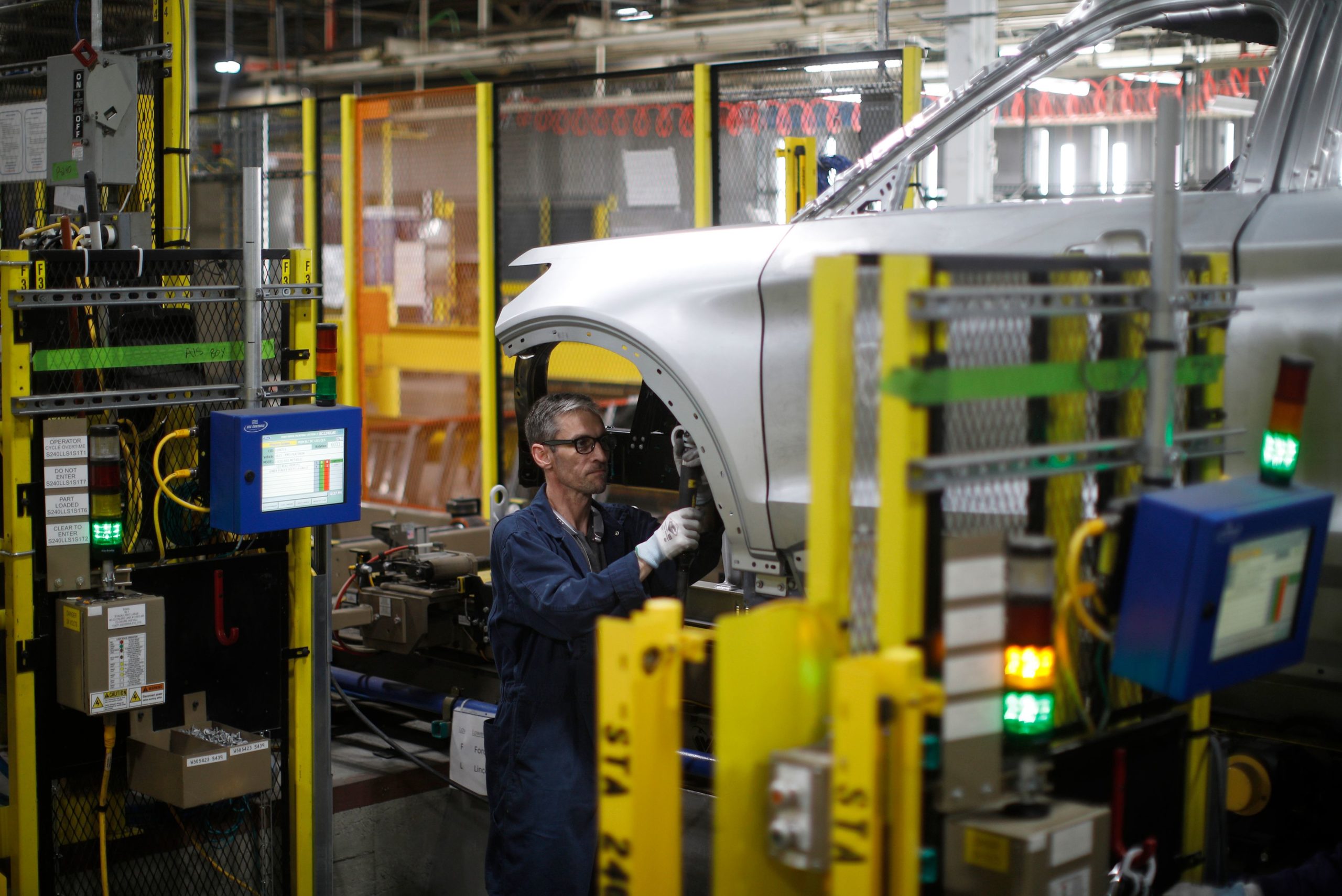When It Comes to Manufacturing, It’s Us or Them
This election cycle may provide the last chance to prevent a permanent eclipse of American industrial power.

I grew up in western Illinois and saw firsthand what happens when unfair trade and financialization runs amok. Communities that were once thriving are now struggling. Major employers that once put entire small towns to work simply got up and left—to Mexico, to China, to anywhere but here at home.
Make no mistake about it: America has been gutted by our elite class, and now these wizards want to sell it for parts to the highest bidder.
U.S. Steel, a symbol of our past industrial unassailability, is in the process of being sold to a Japanese steelmaker. The irony here should not be lost on us—a company from a country that American industry helped rebuild after the Second World War is now commandeering an American industrial icon. This example is just one chapter of a larger story of a nation in decline. We must change course immediately or resign ourselves to this kind of national humiliation for generations to come.
And unfortunately, this national decline isn’t being felt in equal measure. The stock market is at an all-time high, and things are going great for sporty financiers, wearing only the finest Patagonia vests and raking it in. But working class folks are going through a tremendous amount of economic pain right now. They know they’re being dealt a bad hand, and they’re sick and tired of being gaslit about it. The offshoring of foundational U.S. manufacturing capability underscores how our communities are being hollowed out, and how our ruling class is letting it happen by allowing foreign countries to undercut American workers and dump their cheap and often dirty products on our shores.
Sadly, manufacturing jobs have been in decline for years, but with President Trump’s election in 2016, we saw an actual effort to stop—and reverse—that trend. He saw how our industries were getting a raw deal, and how nobody was fighting for them. Trumpist conservatives have long pointed to the obvious necessity of a robust domestic industry, independent from foreign supply chains, for our national security as well.
But ultimately, we will need to go even further with the Trump trade strategy to finish the job and at last deliver a victory for working class America.
One of the clearest ways foreign companies sabotage our domestic industry is by cutting corners on labor standards and paying slave wages to their workers. This provides them with a major competitive advantage in the market, even if it’s an advantage earned unethically. We refuse to compromise on the dignity and prosperity of our workforce, and the first step should be to stop the importation of cheap labor by securing the border.
To boost competitiveness, we should look to the Trump administration’s landmark USMCA, which set a precedent establishing stringent labor rules for any nation desiring access to the world's most lucrative market: ours. This principle must be extended beyond North America, serving as a non-negotiable standard for all who wish to trade with the United States.
Foreign firms also undercut us by using cheap, dirty manufacturing and energy-production practices that American companies left behind decades ago. That means they can sell to us at rock-bottom prices while absolutely wrecking the environment. Countries like China are going all-in on outdated technology to make a quick buck, and we should be punishing them for this unfair advantage—and instead rewarding the innovations in our domestic industry that are preparing us for the 21st century economy.
Subscribe Today
Get daily emails in your inbox
If we want to win on trade, we have to turn China’s advantage into a liability. One proposal, the PROVE IT Act, introduced by Senators Kevin Cramer of North Dakota and Chris Coons of Delaware, would give us the data necessary to put America first and challenge those countries pulling a fast one on pollution. Globalist Chinese Communist Party sympathizers hate this idea, which is why it’s obviously the right move.
We shouldn’t concede that America is in decline. It doesn’t have to be that way. We still retain significant economic power, and we should use it to level the playing field for American workers and families.
But let’s be honest: This may be our last chance to assert that power. Time is running out. If we don’t force our enemies to play by our rules, eventually we will be so hollowed out that we will be forced to play by theirs. By enforcing labor standards and embracing our manufacturing industry’s competitive advantage on the environment, we can hopefully reverse these trends and rebuild our once-great nation and the communities that made it great.